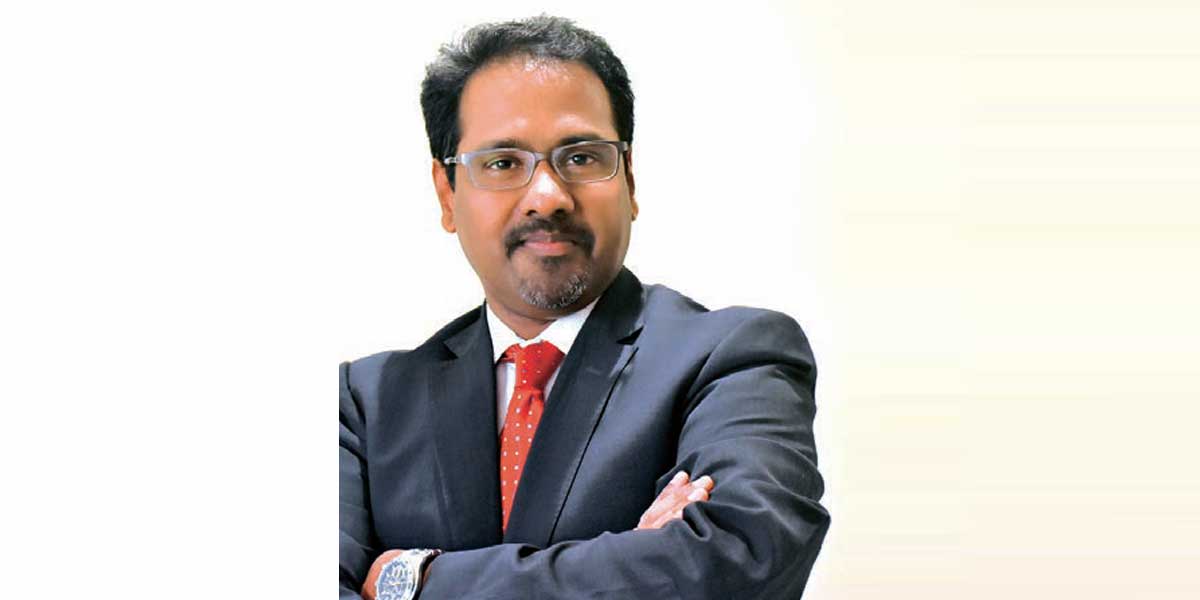Developing a Skilled Workforce
31 Dec 2019
Long Read

For growth to continue, the sector needs to focus on developing a highly skilled, professional workforce, writes SANJAY PATIL.
We live in a world that is increasingly volatile, where predictions based on past experiences are becoming uncertain. There is no single solution, as the modern world is becoming more complex and there is lot of ambiguity in the things that we do. All business endeavours, including the construction sector, are affected. This has made us think differently about creating effective action plans to sustain growth.
In the last three years, the Indian construction industry has encountered major reforms like demonetisation, followed by policy reforms such as RERA and the introduction of GST.
We have also seen new investment opportunities emerge, including REITs and InvITs.The relaxation of FDI and external commercial borrowing (ECB) has made it easier to do business and transformed the construction and real estate sectors, forcing unorganised businesses to shift to an organised format.
Over the next five years, we are expecting new policies, including the updated Benami Property Act, which will change the market dynamics entirely. The government’s Housing for All mission is working to deliver houses that are within the buying power of average people and affordable in terms of operation and maintenance. In addition, the fourth industrial revolution will bring new technologies including artificial intelligence (AI), machine-learning, drone technology and building information modelling (BIM) to the sector. Meeting these challenges will require significant upskilling across the construction sector.
Robust infrastructure is the need
The global construction sector is expected to rise from $6.3 trillion to $15 trillion by 2025, with just seven nations – China, the US, India, Indonesia, Russia, Canada and Mexico – accounting for 72 per cent of this growth. In the same period, according to KPMG, India will become the world’s third largest construction market. Recently, the Government of India has announced its desire to see the country develop into a $5trillion economy by 2024, an increase of $2.2 trillion. To reach this target will require growth of over 12 per cent annually.
It is no secret that to boost the economy, the government needs to make significant investment in developing new, robust infrastructure. Currently, India is lacking world-class power, transport, water and sanitation services. The expansion of these facilities is essential to further economic growth.
As a result, the Government of India is taking every possible initiative to lift the sector. This is evident from ongoing projects such as the 100 Smart Cities and Housing for All missions, as well as opening new industrial corridors, metros, and airports, all of which will boost the construction market. The Planning Commission has already spent $1 trillion on infrastructure and it needs another $1.5 trillion over
the next five years. The government’s new policies and regulations are slowly bringing transparency and professionalism to the sector, thereby attracting public-private partnerships, which can provide half the funding for these investments. Government measures to boost infrastructure development has triggered growth in the construction market in turn.
Upskilling the sector
The pace with which India is moving forward is exceptional. However, this brings into question whether we have enough professionals to meet the challenge facing the country. The problem is two-fold: On the one hand there is an imbalance between the supply and demand of trained professionals, and on the other hand there is a lack of skills within the profession to meet the demands of the modern construction industry. For growth to continue, the sector needs to focus on developing a highly skilled, professional workforce. There is also a need for more institutions to develop the skills required by the construction sector to an international standard.
The Ministry of Human Resource Development has announced a number of schemes to establish such institutions and a number of private entities have entered the Indian market to fill the gap.
One such example is the new RICS School of Built Environment (RICS SBE). The Royal Institute of Chartered Surveyors (RICS) is an internationally respected, UK-based organisation specialising in the built environment. In association with Amity University, it has set up the RICS SBE in Noida and Mumbai. These unique schools offer BBA and MBA degrees in construction, real estate and infrastructure, which meet the competencies required to work to a global standard in the modern construction sector. RICS SBE is an industry-led academic institution offering specialised education, training, research, and guidance on
best practice to address the issues facing society in the 21st century.
Our aim is to equip new professionals with critical thinking skills and emotional intelligence to contribute to the economic growth of the nation in a holistic way.
To this end, RICS SBE has launched a new curriculum from this fiscal year, addressing the skill sets needed to service the jobs market.
To contribute to the sector and its growth, RICS SBE has set out five strategic goals in line with our business plan.
- We will focus on influential thought leadership to bring about beneficial change in response to the major challenges faced by the world in the construction, real estate and infrastructure sectors.
- We will maintain the high standards to which RICS professionals work is demanded, adopted and trusted in the major economies of the world.
- We will ensure that our profession will remain in demand as a result of market trust in RICS standards and credentials.
- We will remain trusted to set and enforce standards forthe profession.
- We will ensure the profession and employees are highly engaged, proud and increasingly diverse. The organisation will remainfinancially stable and strive to increase efficiency.
About the author:
Sanjay Patil, Associate Dean & Director, RICS School of Built Environment, Mumbai, has 19 years of rich and extensive experience in academic administration, curriculum development, strategic planning, research and development, with an added industry experience.
Related Stories

